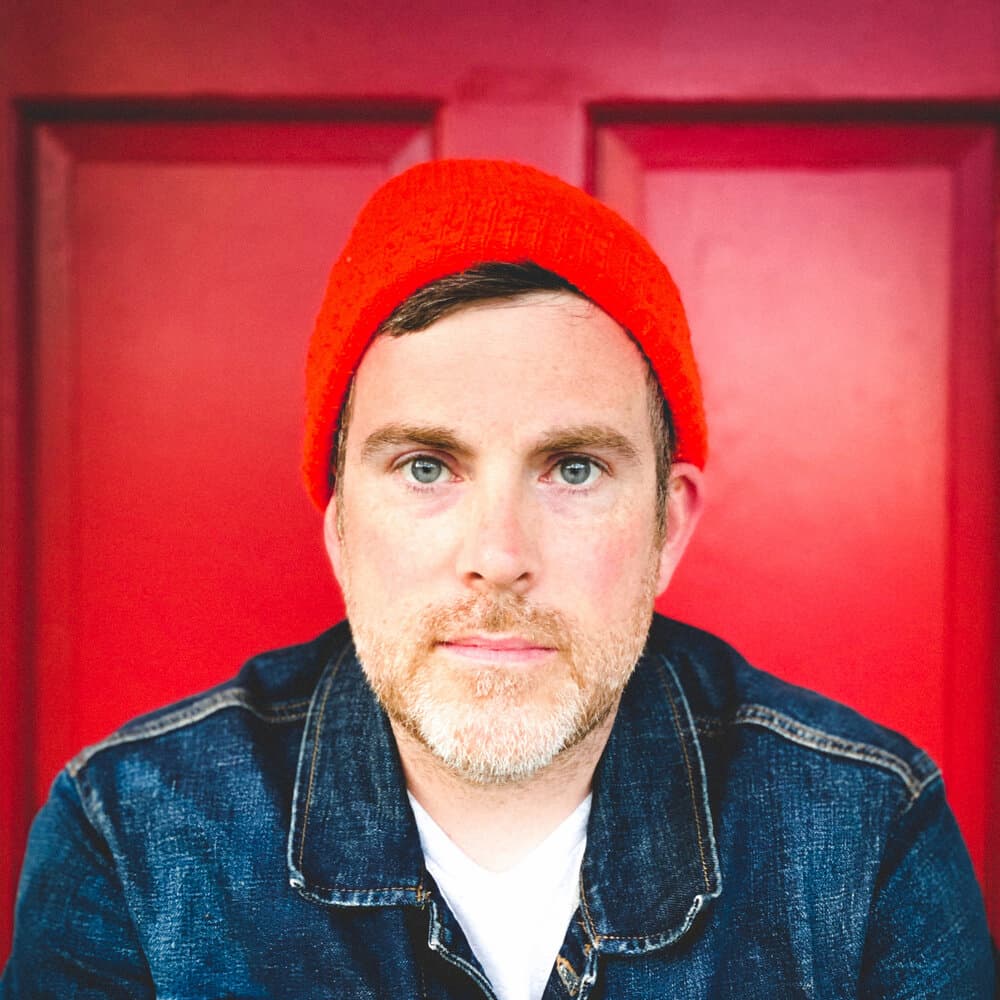First single “There’s a Bird” video premiered by MXDWN
“Robley is indeed the very real deal.” – No Depression
“America deserves more than ruin porn,” says Chris Robley. “Our pilot light hasn’t gone out yet.” And though his latest album A Filament In The Wilderness or What Comes Next (due September 14) is populated with opioid widows, undocumented mothers, unemployed machinists, Sudanese refugees, victims of police violence, stymied teen soccer stars, and his own deceased father, these characters each inhabit a nation where hope and empathy are still warranted, if hard-won.
YouTube link (OK to post).
Mending has been on Chris Robley’s mind. The Maine-based songwriter and award-winning poet lost his father to cancer in late 2016. Just a few weeks earlier Donald Trump won the presidency. Ever since, Robley has been surveying the strange border where private loss and public outrage intermingle. His new album has emerged at once as his most deeply individual and democratic work — one where folk forms are refreshed through sonic collage and electronic production. Throughout, Robley filters the influence of Mary Gauthier, Jason Isbell, and Tom Joad-era Springsteen through a kind of Internet-age Impressionism.
The music on Filament was created in an appropriately pluralistic, postmodern fashion. Not only did the arrangements find their shape without Robley’s direct guidance, but this is the first album where he let other singers take the driver’s seat. Several songs feature lead vocals from Anna Tivel and Margaret Gibson Wehr (Y La Bamba, Moorea Masa, EL VY).
“The lyrics are a tapestry of voices sharing space, so we made the music that way too. I Dropboxed some demos to my friends in Oregon and said ‘these sound like folk songs; please fuck them up!’” Robley conducted his part of the collaboration from his home in the small milltown of Lewiston, Maine. Then the sessions were delivered to Jeff Stuart Saltzman (Stephen Malkmus, Lowland Hum, The Suitcase Junket, Los Lobos, EL VY) whose mixing and production wove the whole together.
“This is my best album because the work isn’t mine anymore,” he says.
While speaking about the music, it’s also true of the larger themes, which start at a deeply personal level and permeate societal and environmental concerns. “On the surface, my dad’s death and Trump’s election don’t have anything to do with each other. But they hit me together and it felt like a sinkhole opened.. My father was a kind, humble man. A man of faith. A man who took responsibility for his actions, expected fairplay, helped others selflessly, served his country as a Green Beret, and brought me up to believe that someone like our 45th president should be utterly ineligible for office.”
And yet in the months leading up to the election, as his father went through the worst of his 7-year struggle with Cancer, Robley realized that his father supported Trump’s bid. “To me, my dad’s political convictions seemed at odds with his personal ones. But we’re all walking contradictions, right? And your relationship to a country is a lot like your relationship to your family: it’s complicated. My father in many ways is still my hero. And if he’s still my hero despite our differences, I can see a glimmer of hope for this country — which is still a place I love and root for.”
That idea is at the center of Robley’s new album: that amidst the clash of voices in America, empathy is “a filament in the wilderness of what comes next.” Mixing journalistic detail and poetic imagery, Robley wrote songs that shift from perspective to perspective until the album accrues a kind of cumulative meaning.
One summer night, Robley sat on his porch with his wife, playing a new rough mix he’d just received from his collaborators 3000 miles away. He listened to Anna and Margaret’s voices and began to cry. “It’s really a moving experience the first time you hear other singers taking your words somewhere you couldn’t,” he says. “And there’s a spot in one of the songs after we’ve all sung separately where Anna, Margaret, and I join up to sing a harmony together. That’s when the tears really started.”
The moment reflected everything he’d wanted to untangle — about mending, about empathy, about what we might still make of democracy’s dimming light. “This album is a collage and a mirror, a triptych and a microscope. It’s about the best and worst of America. It’s about discord and — occasionally — harmony. Such a true and beautiful cliché: harmony is comprised of differences.”
